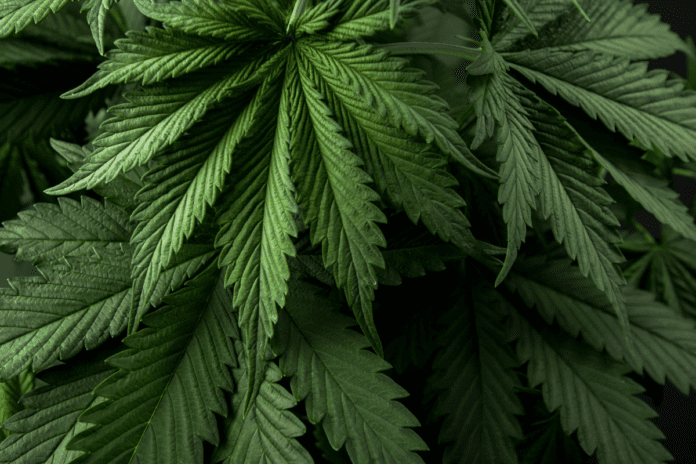- Cannabis offers several benefits for older adults, including pain relief, anxiety reduction, improved sleep, and appetite stimulation.
- While helpful, cannabis use can come with side effects like dizziness, dry mouth, and fatigue, which can be managed with proper dosing and care.
- It’s essential to consult a healthcare professional to ensure safe use, especially when considering potential interactions with other medications.
In recent years, cannabis has seen a surge in popularity among older adults, as its potential benefits for aging and longevity become more widely recognized.
With increasing acceptance of cannabis in both medical and wellness circles, many seniors are turning to it to address age-related challenges such as chronic pain, inflammation, and sleep disturbances.
At the same time, research into cannabis’s effects on aging continues to grow, offering new insights into how cannabinoids might support healthier aging and improve overall quality of life.
This overview explores the factors behind the growing interest in cannabis among older adults and highlights key findings from emerging studies on its role in promoting longevity.
The Mission Organic Center has played a pivotal role in advancing research on cannabis and its potential benefits for healthy aging. Cannabis is increasingly recognized for supporting longevity by addressing age-related challenges such as chronic pain, inflammation, and sleep disturbances.
With cannabinoids like CBD and THC offering therapeutic effects, older adults are exploring cannabis to improve overall well-being. The Mission Organic Center is at the forefront of promoting safe and informed cannabis use, helping seniors navigate its benefits while minimizing risks.

What is Cannabis and How Does It Affect the Body?
Overview of Cannabis
Cannabis contains a variety of compounds known as cannabinoids, which affect the body in different ways. Two of the most well-known are THC (tetrahydrocannabinol) and CBD (cannabidiol).
THC is the psychoactive component responsible for the “high” associated with cannabis use, while CBD is non-psychoactive and valued for its therapeutic benefits, such as reducing pain, inflammation, and anxiety.
These cannabinoids influence various bodily systems, providing effects that can be recreational or medicinal depending on their balance and use.
The Endocannabinoid System
The endocannabinoid system plays a crucial role in regulating key processes in the body, such as mood, sleep, and pain. It works by maintaining balance within these systems.
When cannabinoids from cannabis are introduced, they interact with this system, influencing how the body manages these functions. This interaction is the basis for many of the therapeutic effects associated with cannabis use.
Cannabis and Aging: The Connection
Cannabinoids play a role in regulating various age-related functions, particularly by addressing oxidative stress and inflammation, both of which contribute to the aging process.
They also support cellular health and offer neuroprotective benefits, which may help preserve cognitive function and overall well-being as we age. This connection highlights cannabis’s potential for promoting healthier aging.
Cannabis Benefits for Healthy Aging
Pain Management and Inflammation Reduction
Cannabis has shown promise in managing chronic pain and reducing inflammation in older adults, particularly for conditions such as arthritis and joint pain.
By interacting with the body’s endocannabinoid system, cannabinoids like THC and CBD help alleviate discomfort and improve mobility. Studies suggest marijuana and CBD might help relieve chronic pain while reducing the need for opioid painkillers.
This research, along with other studies, supports the growing use of cannabis among seniors seeking a gentler, more effective solution for long-term pain relief.
Mental Health Support
Cannabis, especially CBD, has gained recognition for its ability to reduce anxiety and support mental health in older adults. Many seniors face increased stress and anxiety due to life changes or health concerns.
CBD, the non-psychoactive compound, offers calming effects without the “high,” helping manage these feelings naturally.
Research shows CBD interacts with serotonin receptors, crucial for mood regulation, making it a valuable option for reducing anxiety and managing stress in a gentle, effective way.
Cognitive Health and Neuroprotection
Cannabis, especially CBD, shows promise in protecting brain health and reducing the risk of neurodegenerative diseases like Alzheimer’s. Research indicates cannabinoids have neuroprotective properties that help preserve cognitive function.
A 2019 study in Frontiers in Aging Neuroscience found cannabinoids reduce brain inflammation and oxidative stress, key factors in cognitive decline. By interacting with receptors tied to memory and learning, cannabis may slow dementia progression.
This research supports its potential in maintaining cognitive health, offering a promising option for older adults looking to preserve mental sharpness.
Improving Sleep Patterns
Cannabis, especially CBD, supports better sleep in older adults by helping manage insomnia and sleep disruptions common with aging. Many seniors have trouble falling or staying asleep due to pain, anxiety, or health issues.
CBD’s calming effects promote relaxation, making it easier to fall asleep and enjoy more restful sleep. Research shows that CBD interacts with sleep-regulating receptors, improving overall sleep quality without the side effects of traditional sleep aids, offering a natural alternative for better sleep.
Appetite Stimulation and Weight Management
Cannabis, particularly THC, helps stimulate appetite, which is beneficial for older adults dealing with malnutrition or weight loss. Aging often reduces appetite due to health issues or medications, but cannabis can encourage seniors to eat more and maintain a healthy weight.
Research shows that THC interacts with brain receptors controlling appetite, making it a helpful tool for improving nutritional intake and managing weight in seniors.
Risks and Considerations of Cannabis Use for Older Adults
While cannabis offers several potential benefits for older adults, it’s important to be aware of the risks and considerations associated with its use, particularly when it comes to side effects and drug interactions. Here are some key points to keep in mind:
Potential Side Effects
- Dizziness: A frequent side effect, particularly in higher doses, which can increase the risk of falls in older adults. To minimize dizziness, start with a low dose and avoid standing up quickly after consuming cannabis.
- Dry Mouth: Cannabis can reduce saliva production, leading to an uncomfortable dry mouth sensation. Staying hydrated and using sugar-free lozenges or mouth sprays can help alleviate this effect.
- Fatigue: Some individuals may feel overly tired or sluggish after using cannabis, especially products high in THC. Choosing strains or products with a higher CBD content can help reduce fatigue and improve energy levels.
- Drug Interactions: Cannabis can interact with medications commonly used by older adults, such as blood thinners or heart medications. Always consult a healthcare professional to ensure safe use alongside other prescriptions.
Conclusion
In conclusion, cannabis offers significant benefits for healthy aging, from managing chronic pain and anxiety to improving sleep and stimulating appetite. However, it’s important to be mindful of potential side effects and interactions with other medications, especially in older adults.
Consulting a healthcare professional for personalized advice is crucial to ensure safe and effective use. As research continues, cannabis shows promise in enhancing the quality of life for seniors, providing a natural option to support overall well-being and healthy aging.





